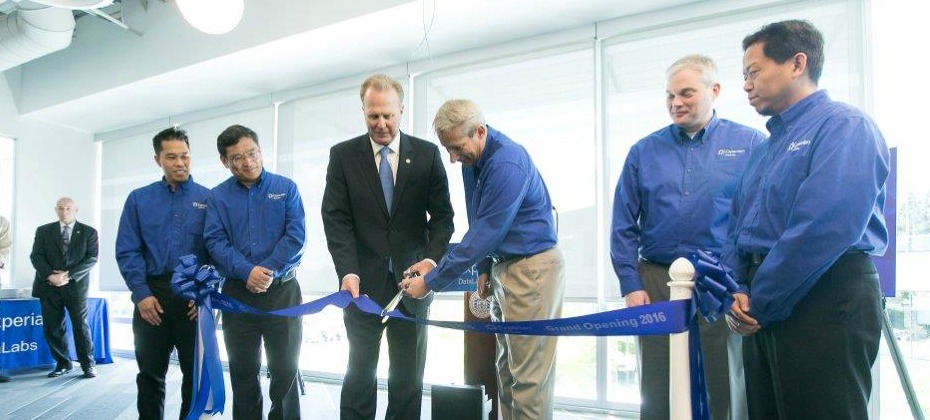Data & Analytics
Experian is committed to using data as a force for good. We continue to explore new ways to harness our data and resources to drive financial inclusion, facilitate access to fair and affordable credit for consumers and help them improve their financial well-being. Read about our latest data news below:

I’m an Experian Health Training Manager. I get to meet with healthcare organizations and teach them how to use our Financial Assistance Screening tool, which helps them easily and cost-effectively determine which patients qualify for financial assistance. I didn’t expect to interact directly with patients as part of my job, but I did – and the experience moved me. Recently, a client started using our automated tool, so I went to Colorado to train their financial counselors on how the product worked and help them understand the data so they could begin to use the tool with their patients. But then I was asked if I wanted to see the tool in action. Nothing could have prepared me for the experience of interacting directly with a patient who benefited from this tool – a woman who seemed visibly shaken when the financial counselor and I first met her in one of our client’s medical centers. After the financial counselor explained why we were there, she began to work her way down a list of questions prompted by Experian’s tool, asking about the patient’s annual income, household size and disabilities. After two minutes of questioning, the counselor hit “save” on the responses, and immediately the results came up on the screen. “Good news – you qualify for a 100 percent discount through our Medical Financial Assistance program,” the counselor said. “Your medications, stay and follow-up visits will all be covered.” The patient had trouble processing this information at first. “Are you telling me that now I can focus on getting better, and I don’t have to think about my medical bills?” This realization brought her to tears of relief. Her time in the waiting room had been plagued with thoughts of how she couldn’t afford her hospital stay, despite how much she needed medical attention. With our help, those thoughts were put to rest. With Experian’s tool, patients like this woman no longer need documents to prove their annual income. And healthcare providers don’t need to manually calculate whether and how they can provide financial support. After our meeting with this patient, the financial counselor told me she was so moved she was shaking. “It is inspiring to so tangibly be able to help our patients,” she said. I agree. I’m glad that through data, I’m helping healthcare organizations give patients financial peace of mind when they need it most. Read more #ExperianStories from our colleagues around the world.

Consumers are constantly on the go, and expect and deserve highly personalized communications. But how do marketers adapt to this new reality?

I’m a Marketing Specialist with Experian’s shared Marketing and Innovation department, which means my team and I work with different business units within Experian to strategize and build email marketing campaigns for our clients and prospects. My role in marketing is largely driven by analytics. I help my clients strategize and develop emails that get deployed to consumers who might be looking for better access to credit or information to make decisions for their business. I help my clients create a communication strategy rooted in data, then review the performance of their campaigns to analyze how they can improve their communications in the future. I can definitely tell when my work is making a difference. Often businesses make marketing decisions based on gut feelings—like randomly choosing to add a green button to an email campaign rather than a red button simply because they like that color better. Without the numbers behind that decision-making process, they’re simply relying on feelings. But when I come in using data from the campaign, I can prove that the green button drove 50 percent more click-throughs than the red one, for example. Recently I developed a training guide for marketers to help them learn more about email marketing analytics and how they can use data to transform how they communicate with their own clients and consumers. Whenever a marketer deploys emails, they want to know and understand how the campaign performed. I have often found, however, that marketers shy away from even basic metrics like click-through rates because they think the numbers are too difficult to understand, or they don’t know how to properly gather that information. The guide I built gives our clients some of the tools they need to pull the metrics and break down the numbers. Once a marketer understands the story the data is telling them, they can begin to improve on subject lines, calls to action and other email campaign components to better reach their audiences and drive revenue. In other words, they can improve their businesses and address their customers’ needs better by relying on data instead of gut feelings. Read more #ExperianStories from our colleagues around the world.

This rapid growth in data collection is creating strong demand for data scientists, and there is a shortage of data scientists with extensive experience in the field.

Emad Georgy, global CTO of Experian Marketing Services, explains how marketers can enhance customer journey to attain success in their business.

Experian has expanded its growing North America DataLabs in San Diego to further innovation and enable leading data scientists to help clients and businesses solve strategic marketing and risk management problems through advanced data analysis processes, research and development.

Click here to listen to the interview in SoundCloud. This Bloomberg Business Radio interview with Eric Haller, executive vice president of Experian DataLabs, covers Experian’s innovative approach to using big data and social media to help small businesses with credit verification.